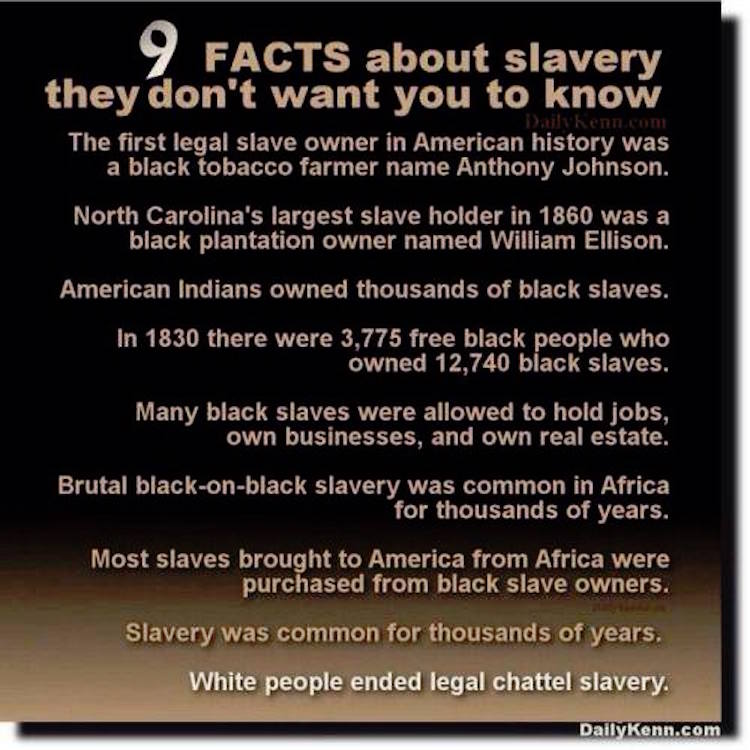Turn Right
VIP Member
- Banned
- #1
Black slave owners in the United States
Philip Burnham, in the article "Selling Poor Steven" published in the February/March 1993 issue of American Heritage, found that in the US Census of 1830 there were 3,775 free blacks who owned 12,740 black slaves. Burnham wrote about the slave John Casor, who was denied his freedom by Black slave owner Anthony Johnson.
Philip Burnham, in the article "Selling Poor Steven" published in the February/March 1993 issue of American Heritage, found that in the US Census of 1830 there were 3,775 free blacks who owned 12,740 black slaves. Burnham wrote about the slave John Casor, who was denied his freedom by Black slave owner Anthony Johnson.
"In the 1640s John Casor was brought from Africa to America, where he toiled as a servant for a Virginia landowner. In 1654 Casor filed a complaint in Northampton County Court, claiming that his master, Anthony Johnson, had unjustly extended the terms of his indenture with the intention of keeping Casor his slave for life. Johnson, insisting he knew nothing of any indenture, fought hard to retain what he regarded as his personal property. After much wrangling, on March 8, 1655, the court ruled that "the said John Casor Negro shall forthwith be returned unto the service of his master Anthony Johnson," consigning him to a bitter lifetime of bondage. Given the vulnerable legal status of servants - black and white - in colonial America, the decision was not surprising But the documents reveal one additional fact of interest: Anthony Johnson, like his chattel Casor, was black.


